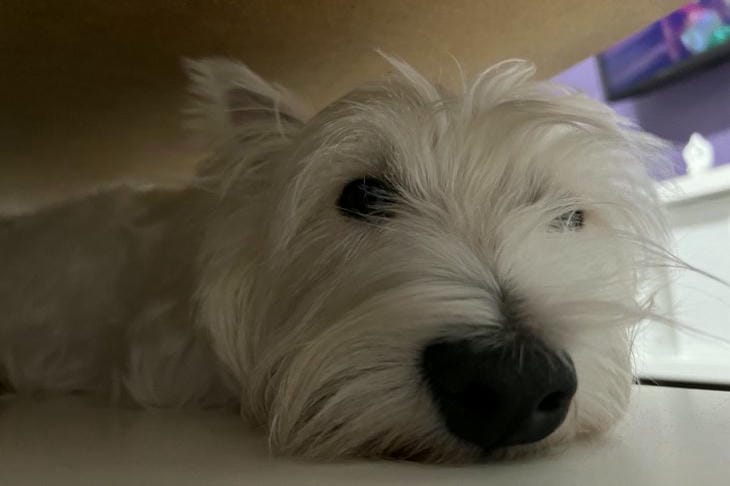Many dog owners are faced with mysterious behavior of their pets.
One of these mysteries is why does a four-legged friend chew on his bed?
We need to study this issue and find ways to solve the problem.

Natural instincts
Dogs are descendants of wolves, and some of their behavioral habits are rooted in the wild. Gnawing on a dog bed may be a manifestation of the instinct to arrange a den.
In the wild, wolves and wild dogs often dig holes and create sleeping areas.
Pets that are unable to dig may try to "improve" their sleeping area by chewing on it.
Boredom and lack of activity
Often the cause of a dog's destructive behavior is a lack of physical and mental activity.
If your pet doesn't get enough walks, play, and attention, he may look for ways to keep himself busy on his own.
In this case, gnawing on the bed is a kind of entertainment for a bored animal.
Anxiety and stress
Some dogs begin to chew their things due to increased anxiety or stress.
The reasons may be changes in the home environment, the appearance of a new family member or pet, moving, noisy events outside the window.
In such cases, gnawing on a bed is a way to relieve tension and calm the nervous system.
Dental discomfort
In puppies and young dogs, chewing on their bed may be associated with teething.
Discomfort in the gums causes them to look for ways to relieve the discomfort. Adult dogs may also chew on objects due to problems with their teeth or gums.
Attracting attention
Sometimes dogs resort to destructive behavior to get their owner's attention.
If the pet notices that gnawing on the bed causes an immediate reaction from the owner, he may repeat this action over and over again, even if the reaction is negative.
How to solve the problem
To eliminate the habit of chewing on the bed, it is necessary to identify and eliminate its cause. Here are some tips:
1. Increase your dog's physical activity. Regular walks, games, and training will help combat boredom and excess energy.
2. Provide your pet with chew toys. Chewing toys will help satisfy the need to chew and will keep your dog busy.
3. Create a calm environment at home. Reduce sources of stress and provide your dog with a quiet place to rest.
4. Check the health of your dog's teeth and gums. Consult your veterinarian if necessary.
5. Don't reward unwanted behavior with attention. Ignore bed chewing and praise your dog when he behaves calmly.
6. Use repellent sprays. Special products with an unpleasant smell for dogs can discourage the desire to chew on the bed.
7. Replace the damaged bed with a new, more durable one. Choose models made of materials that are resistant to scratches and bites.








